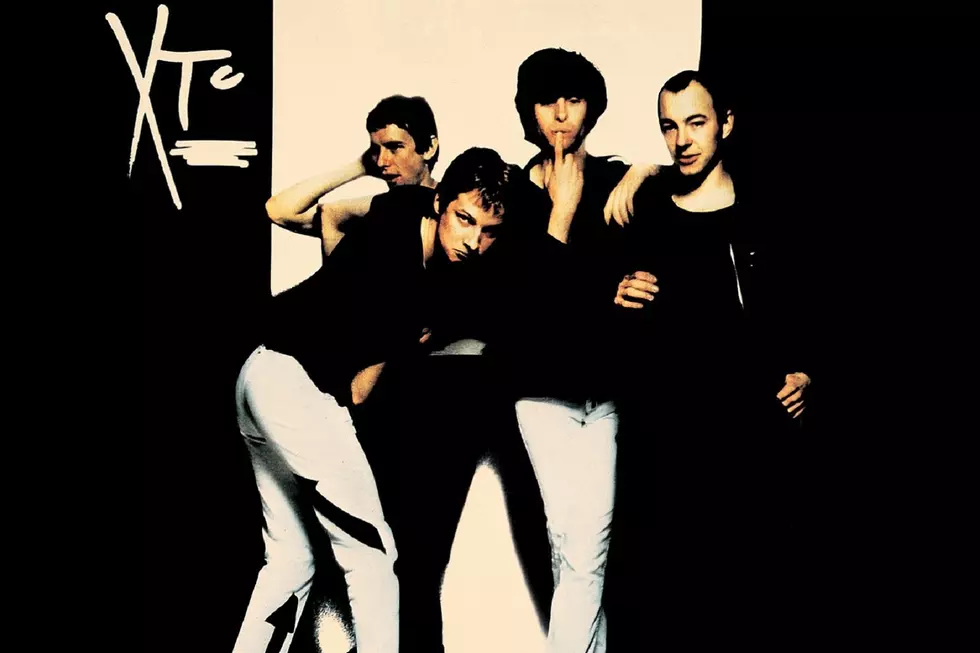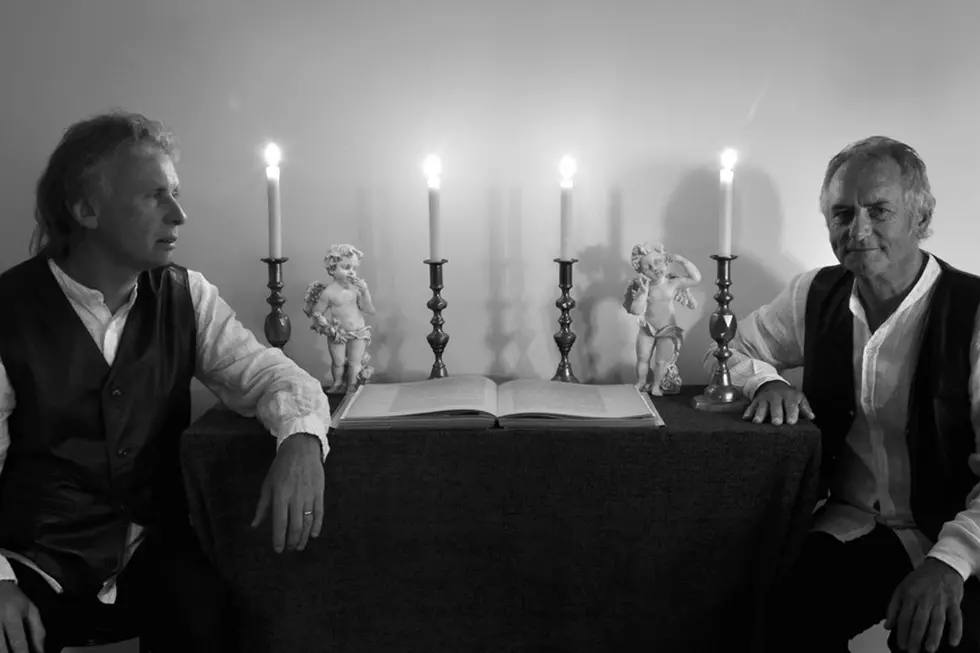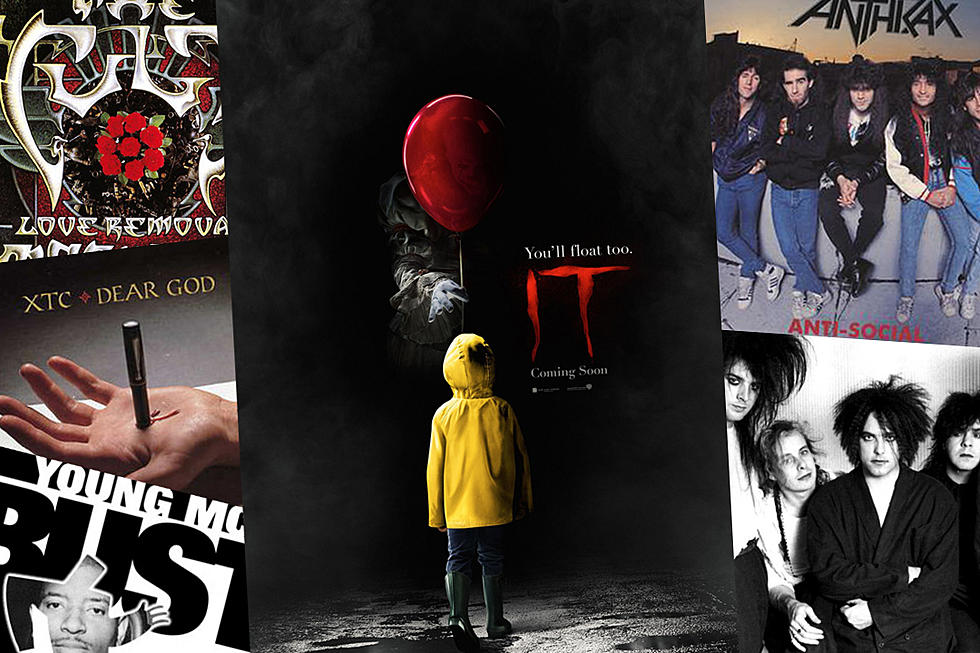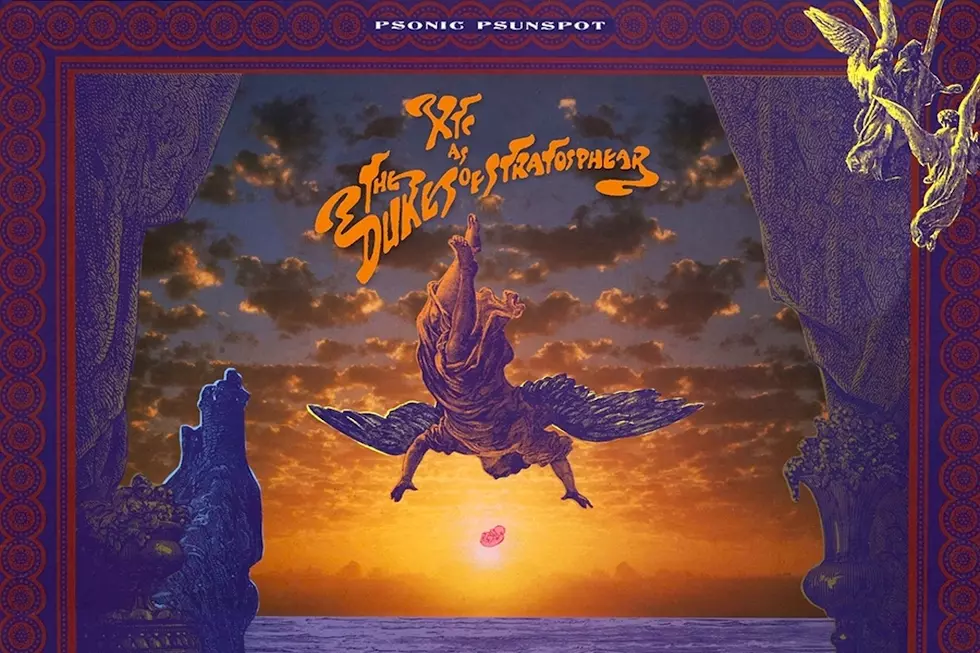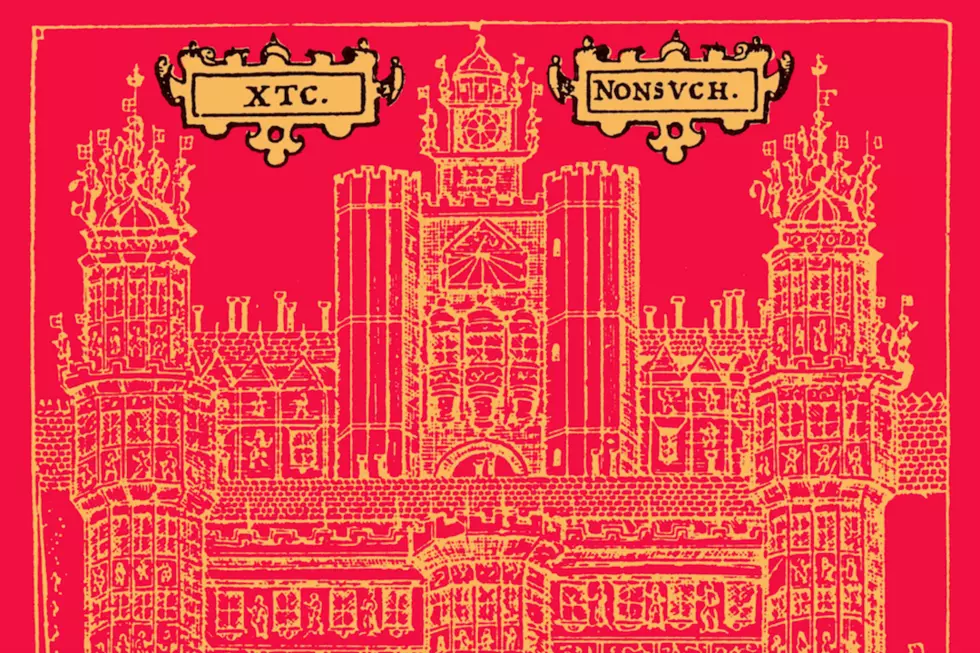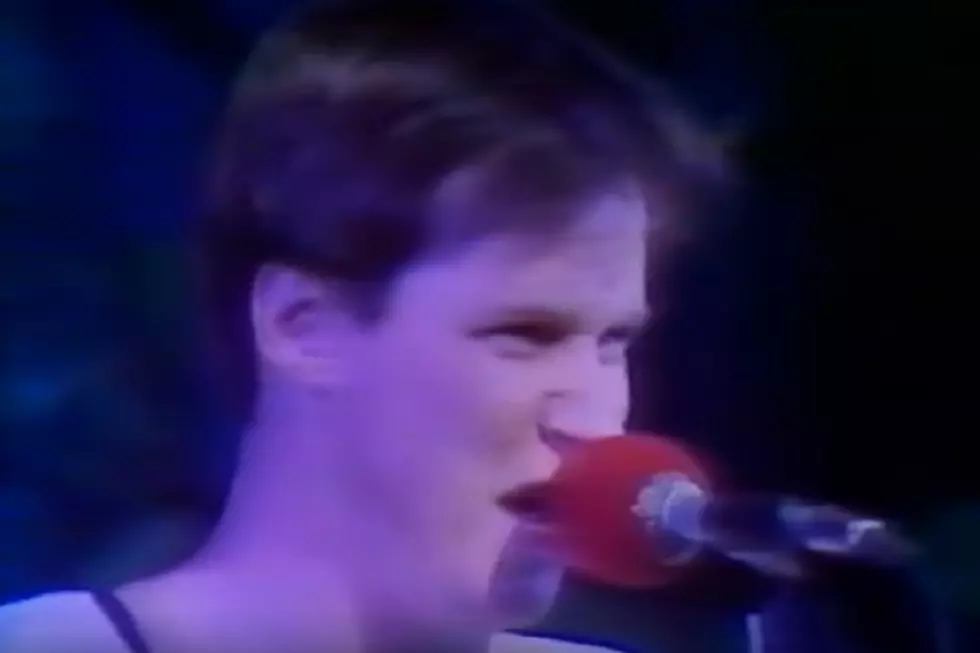When XTC Took a Great Leap Forward on ‘English Settlement’
XTC released its fifth studio record, the double-album English Settlement, on Feb. 12, 1982. When compared to the band's previous record, 1980's Black Sea—not to mention 1979's post-punk milestone Drums & Wires—English Settlement is less frantic and more deliberate-sounding.
This translates to music that's stubbornly in between genres and resists pigeonholing. Take the first two songs on the album, "Runaways" and "Ball and Chain." The former boasts slippery grooves and haunted, stair-step harmonies; the latter is one of XTC's best songs, a biting condemnation of destructive forward progress ("Motorways and office blocks / They're standing on the spot where stood a home") burnished with majestic keyboards and a roller coaster-caliber melody.
Elsewhere, the pastoral "Yacht Dance" feels like a precursor to 1986's Skylarking; "All of a Sudden (It's Too Late)" merges burnished, copper-penny guitars with soulful bass slink; and the sharp-angled "Leisure" is a lurching, caterwauling mod-pop. "It's Nearly Africa," meanwhile, features rhythms that resemble a muted version of Adam and the Ants' "Burundi Beat" style, while "Fly on the Wall" harkens to XTC's buzzing synthpunk days and "Down in the Cockpit" is full-on ska-pop.
English Settlement was firmly new wave, in the sense that it felt like a new beginning not just for XTC, but for the genres the band shepherded and embraced. "I'm becoming much less interested in music and much more in words," leader Andy Partridge told Progressive Media in 1982. "And I think it's beginning to show. On this album, there are a lot of words per track, if you see what I mean. Also, much simpler forms of music appeal to me—I think the music's getting simpler as the years go by, and this is not a desire to say, 'Hey, let's make some money.' It's just that I'm trying to simplify the music and be more effective with less."
One such song is the raucous "No Thugs in Our House," an intricate song driven by "a desire to write this rather old-fashioned/modern morality tale," Partridge said in Complicated Game: Inside the Songs of XTC. Featuring a cast of characters—including a pair of ignorant parents, a policeman and a deceptively innocent teenager named Graham, who "slept on / Dreaming of a world where he could do / Just what he wanted to"—the song is a piece of trenchant societal commentary.
"At the time it was written, there was an awful lot of awareness of the National Front in England—we’d done at least one Rock Against Racism festival by that time—and at that point in England, there was an awful lot of anti-right kind of feeling, because it seemed like they were growing in prominence," Partridge continued. "It was probably more to do with the paranoia of the time rather than their actual prominence, if you know what I mean."
Other songs were more explicit about their political stance. The breezy, tropical-sounding "Melt the Guns," for example, is an indictment of trigger-happy American foreign policy and a call for gun control ("Melt the guns and never more to fire them"). (In an abstract way, the music is also a complement to the 1975's "UGH!") And "Knuckle Down" is an earnest, anti-racism song: " So put aside the hoodoo and some of the voodoo / About people being different / They're not so different."
"I think it's our most English record," Partridge told Progressive Media. "That's why it has that title, you see. It's kind of an ambiguous title. [In fact], the British cover is an embossed prehistoric hill carving of a horse—literally a kind of Iron Age advertisement for an English settlement that was on top of the hill when the first settlers came to England.
"And it's us living here, settling here," he adds, "and also the settling of viewpoints, when two people have a disagreement or a different view and they get something settled."
English Settlement also contained XTC's biggest U.K. chart hit, "Senses Working Overtime," which reached No. 10 on the chart. It was "the obvious choice for the single," Partridge said in Complicated Game. "And I must admit, I was trying to write a single when I wrote it. I knew it was going to be a single when we recorded it, but I wasn’t too embarrassed about it being crass, because it wasn’t."
Meanwhile, "Jason and the Argonauts"—a whimsical song about the overwhelming abundance of riches encountered during world travels—arrived as Partridge had decided he was done with the road life, despite the fact XTC had moved up the ranks to headlining bands that traveled in a bus. "This [song] was written from a perspective where I knew I didn’t want to tour," he said in Complicated Game. "I knew I was not enjoying the treadmill. I was beginning to feel really like a prisoner.
"I did actually spend quite a bit of time in the studio trying this concept out on the others—getting them one at a time and saying to them, ‘What do you think about not touring this album?’" he added. "Just testing the depths, you know. But the universal message was, ‘Oh, it’ll be great! Let’s get out there.'"
However, Partridge was indeed done with live shows. In May 1982, the band's U.S. tour was scrapped after he collapsed before a Hollywood Palladium show, due to what Creem reported at the time as “complete mental and physical exhaustion." In reality, it was crippling stage fright, as Partridge told People in 1989.
“I was forced by the manager to feign physical illness so promoters wouldn’t have my legs broken,” he said. “The only good thing about touring was that for an hour you had a good sweat and a jump around. It was like a high-decibel sauna. But when I started to get stage fright, that ended it.”
Still, English Settlement was XTC's highest-charting U.S. LP for years; the album peaked at No. 48 on the Billboard album chart. Search on Apple Music, and the LP also comes up as one of the top results for the band. English Settlement has become one of XTC's most enduring releases—a record with much to explore and messages that feel enduring and resonant today.
Indie Rock's Best Labels
More From Diffuser.fm
